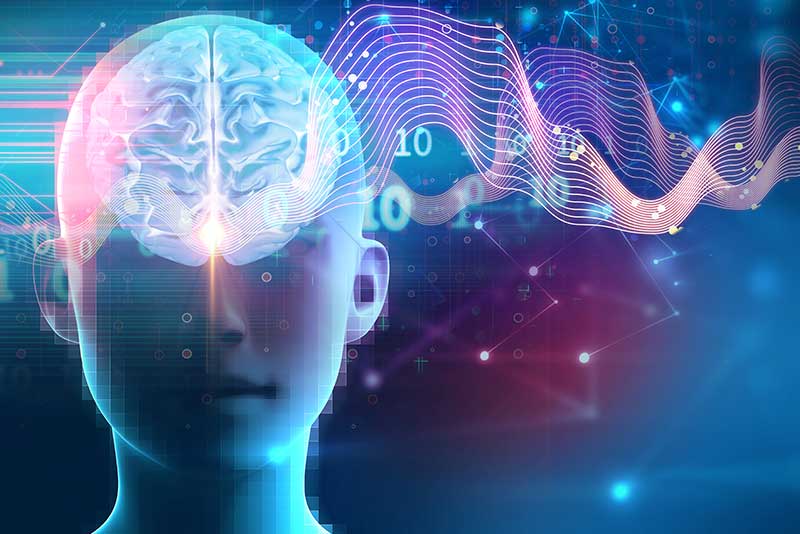Mental Health problems are very complex and can occur due to many reasons. Sadly people across various demographics and societies still consider the topic of mental illness a taboo. Unfortunately, things are the way they are.
According to Stanford University, any divergence from the common standards of action, behaviour or attitude is considered mental illness or disorder. Schizophrenia, OCD, and depression are common mental illnesses that prevail in society.
According to a citation published in 2017, we learn that 792 million people live with mental illnesses. Meanwhile, we have witnessed a pandemic and global economic turbulence, and it is expected that the number has only gone up in this period. This article will help you understand mental illness and its causing factors in a detailed yet accessible manner.
Factors that can cause mental disorders
Innumerous factors can lead to mental illnesses. For easy understanding, we have outlined the three prime factors, which are :
- Biological
- Psychological
- Environmental
Read on to understand each factor in depth.
1. Biological factor

As Eric Kandel, a Nobel laureate, said “it’s all about biology” when he talked about it in a conference regarding mental disorders. Biological factors may be related to genes, consumption of drugs etc. Here we have mentioned the crucial ones.
Genetical reasons
The possibility of one getting a mental illness increases if there is a presence of mental illness history in any ancestor. Genes carry common traits and many other things from one generation to another. But, sadly, it also brings the seed of mental illnesses in many cases.
Alteration in brain chemistry
Certain chemicals in our brain primarily regulate how we feel and our overall mood and well-being (e.g. dopamine, serotonin). When there is a significant dip in these chemicals, it can cause a general feeling of sadness. If the drop continues for an extended period, it can lead to chronic depression, anxiety or even bigger mental disorders.
Damage during the prenatal stage
If the mother is stressed during pregnancy, the child’s mental health can be severely affected as crucial brain parts develop in this stage.
Suppose the child bearer is already a patient of depression, and there is a lack of proper care for the mother’s mental health. In that case, the child can develop Attention deficit – hyperactivity disorder. Even trauma during parturition can lead to a condition like autism.
Poor nutrition
Our diet and nutrition are crucial for our brain’s proper functioning. Hence if one is malnourished and doesn’t intake healthy foods, mental illness can inflict this kind of person anytime. In addition, bad habits like smoking, drug abuse and drinking worsen the problem.
Conversely, a rich diet loaded with vegetables, fruits, and lots of water will greatly increase your brain’s potential and significantly improve your mental and physical health.
2. Psychological factors

The term includes a broad spectrum, yet we have narrowed it down to some common factors.
Relationship problems
Sometimes our decisions and thoughts contradict with the people we live with. If left untackled, these issues transform into big problems.If one faces extreme trouble living in peace with their partner or parents, it results in stress, which can finally lead to severe mental issues. Therefore nurturing and protecting our relationships is important,
Childhood abuse
Any childhood abuse, whether physical, sexual or emotional, can have long-lasting effects on the mind. It’s so disastrous that it can cause severe mental problems. After twenty years of research, it is observed that there is a strong connection between maltreatment in childhood and mental illnesses.
In many cases, the child often walks on the path of substance abuse to escape the disturbing reality. Consequential habits like this only increase the risk of mental disorders over time.
Being different
We are all children of God and should have equal rights as others. However, with time our society has developed some cultural norms. If one falls out of the grid, they face discrimination. Transgender and non-binary people face extreme mental pain on various occasions. Additionally, places with indigenous populations also face a similar kind of problem. Due to cultural differences, people who fall in the minority face hackle and taunts, leading to chronic depression and even suicidal thoughts.
3. Environmental Factors

It is one of the essential factors considering how fast our lives are changing. There can be a variety of environmental factors. For now, let’s explore a few.
Socio-economic
You don’t need to be a scientist to know that money can help you with many things. Hence, the poor socio-economic status of a place and poor mental health are directly proportional.
Poverty snatches away the basic requirements of life, like quality food, education, and livable shelter, this scarcity takes the form of mental illness.
Work-Life Balance
As work-related stress grows, one’s well-being and mental health quality drop.
Excessive work pressure creates mental as well as physical fatigue. In addition, one can quickly get angry about minor issues if that person has a poor balance between work and family life. Also, this condition can instigate quarrels between family members, ultimately leading to poor mental health scenarios. We rarely talk in person with our friends and relatives nowadays. It’s mostly video calls or chat.This also creates a sense of isolation, making up the foundation for mental ailments.
Lack of Self-Love
Along with maintaining a balance between your family and work, taking good care of yourself is also very necessary. Remember, how bollywood emphasised on being one’s favourite. Unfortunately, work pressure and the efforts to maintain a good lifestyle have forced us to forget the small pleasures of daily life. You have to pay dearly for the lack of self in the form of mental fatigue. Busy people also don’t find enough time to practice mindfulness or exercise in general. Activities like these produce dopamine and serotonin in the body, which uplifts our mood.
Conclusion
Mental health illness is a condition that affects an individual’s mental health. It can be triggered by any biological, psychological and environmental factors listed above. The most disturbing thing in this whole scenario is our lack of consideration to these issues. One should take mental health seriously and seek help when needed.
This article aims to provide the information you need to understand mental health illness and its causes. Keep visiting Yuvaap for more such informative articles.
References: https://jamanetwork.com/journals/jamanetworkopen/fullarticle/2770146
https://pubmed.ncbi.nlm.nih.gov/31485801/

Anjani Kumar Shrivastava, a distinguished yoga expert with decades of experience, brings healing and wisdom through yoga therapy, meditation, and Ayurvedic principles. His remarkable Read more


